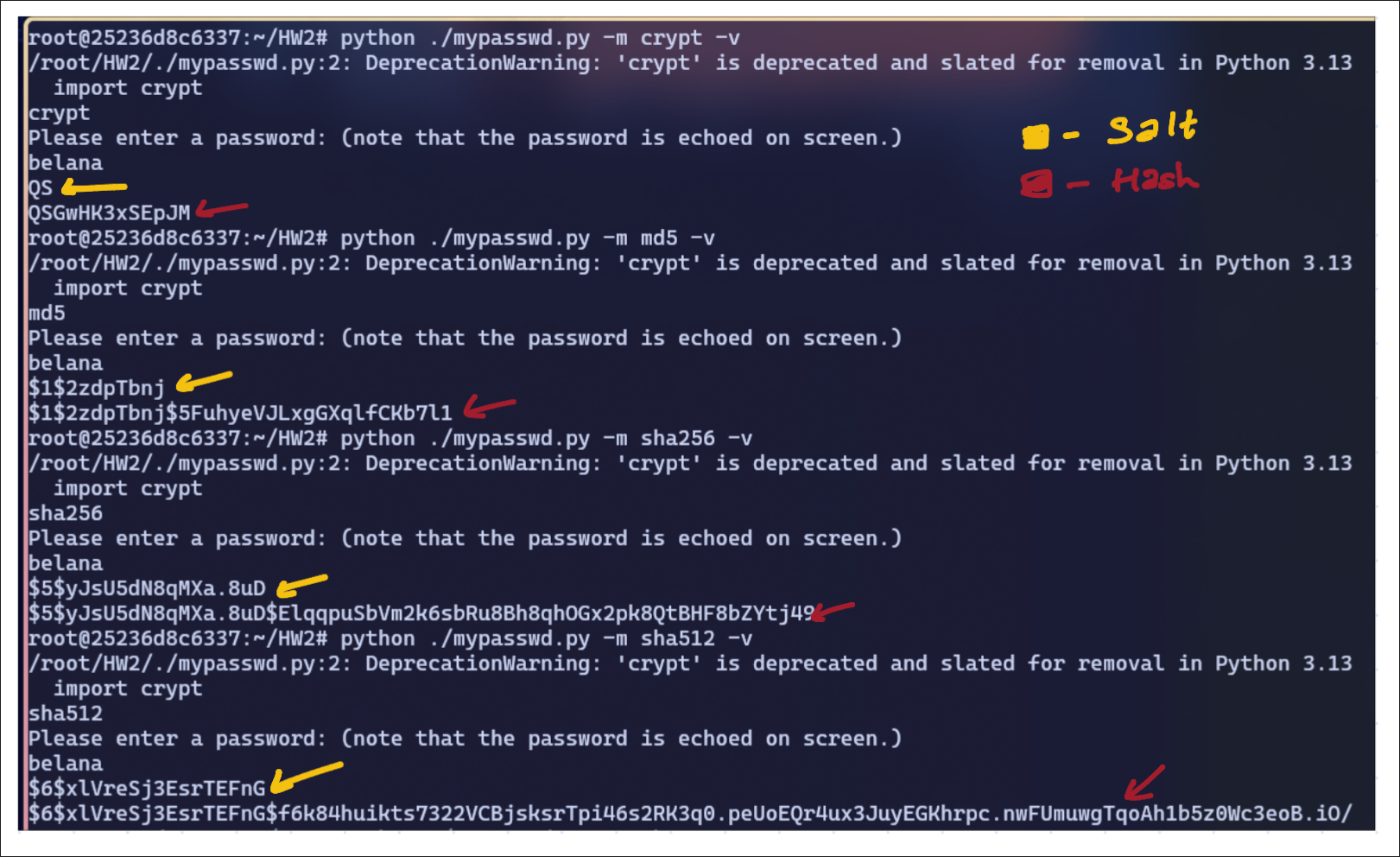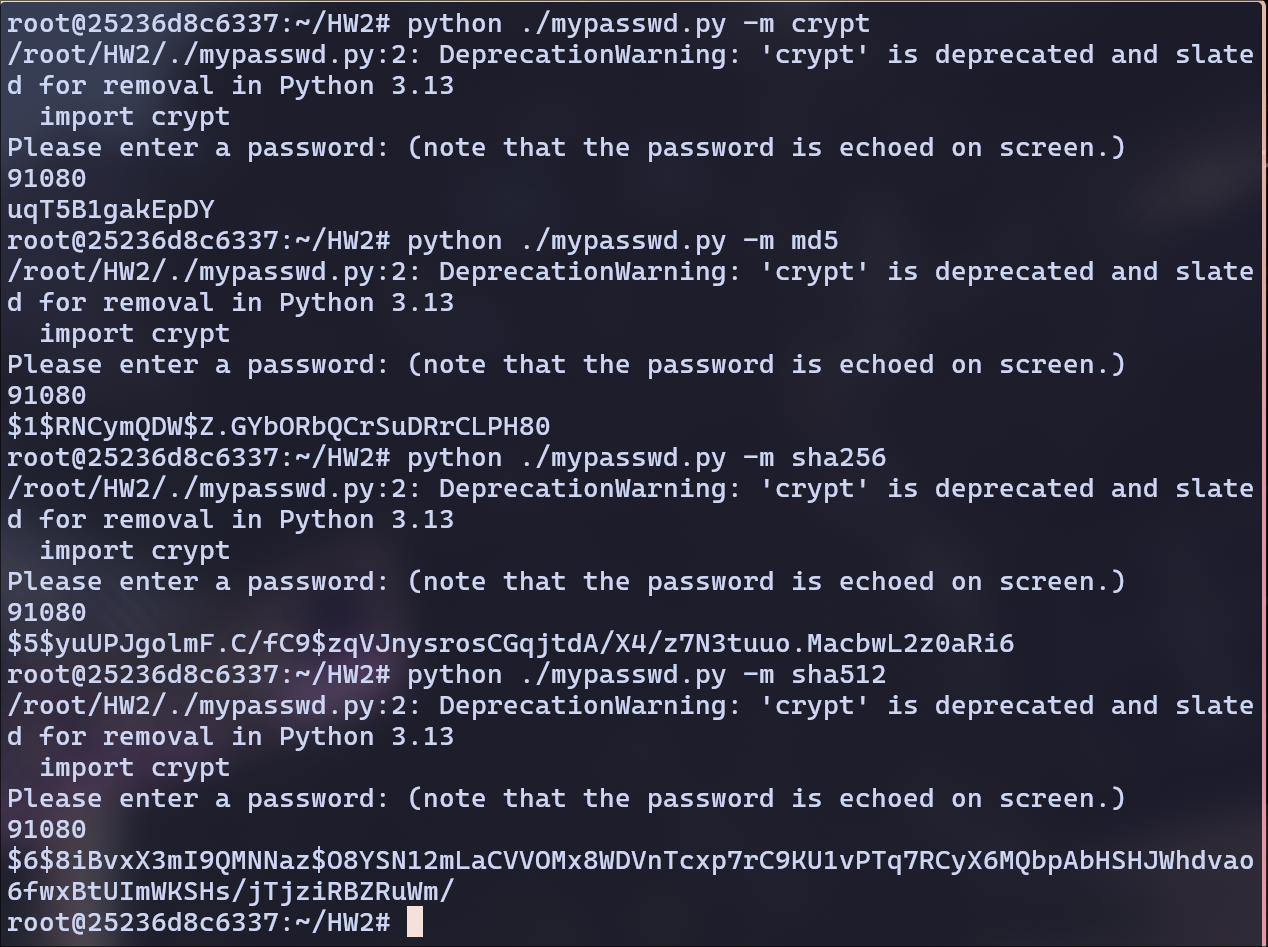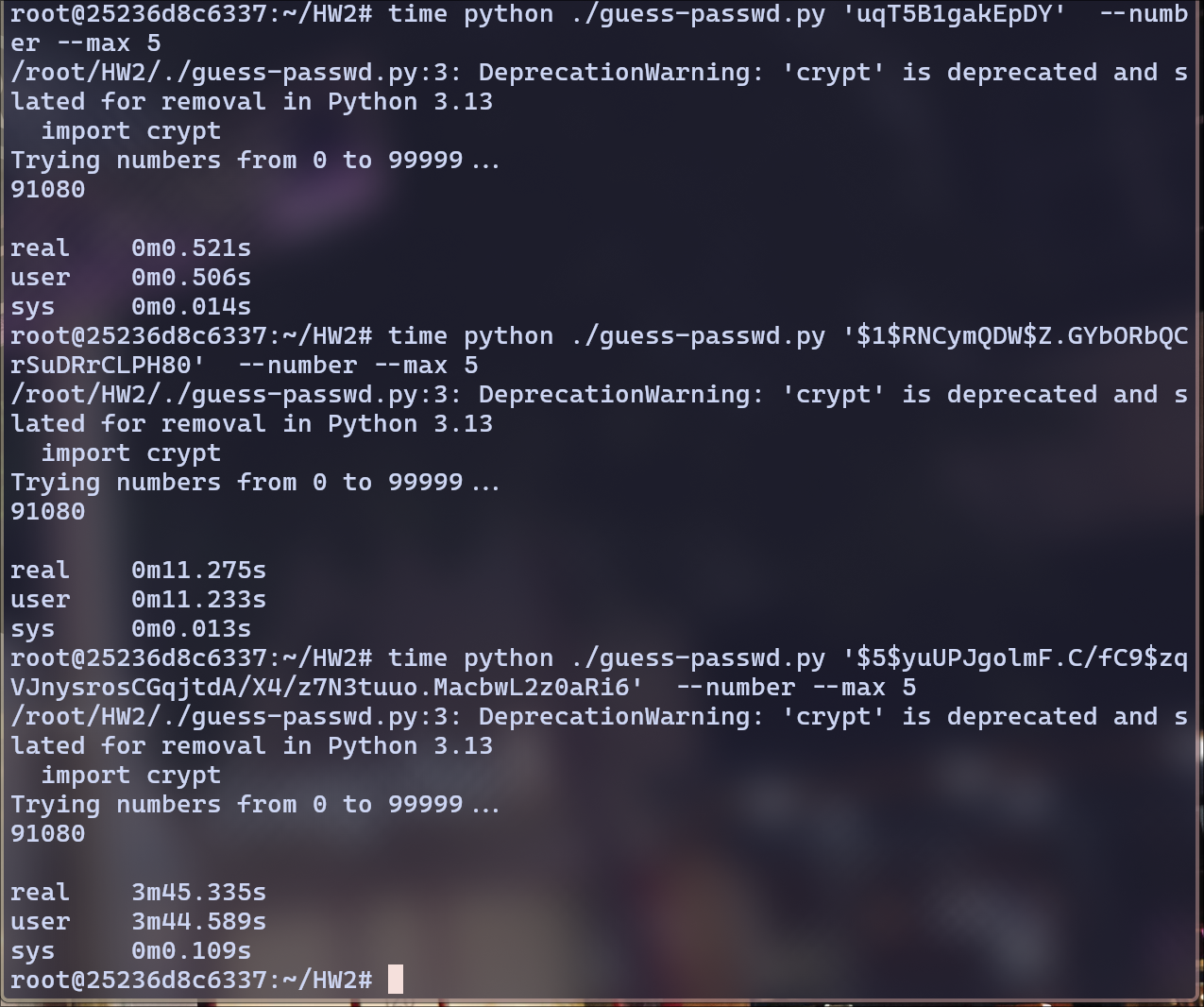**### Q1.
Answer: Yes, both Google Chrome and Firefox offer built-in password management features. However, they are encrypted using the OS’s encryption mechanism and stored locally on your device.
- Google Chrome doesn’t offer a master password feature. Once we login to OS account, accessing saved passwords in Chrome doesn’t require additional authentication.
- Firefox provides and optional
Primary Passwordoption. When it is enabled, it requries the user to enter this password to access the stored credentials, adding an extra layer of security.
| Feature | Google Chrome | Firefox |
|---|---|---|
| Master Password | Not Available | Yes (Optional) |
| Preventing Unauthorized Access | anyone with access to your user account can view passwords | Master password ensures that only individuals who know this password can access the credentials |
| Cloud Sync | Enabled to sync across devices - signed in | Can Sync password across devices - signed in |
| Server Knowledge of Plaintext passwords | They are encrypted. Google claims it cannot access your plaintext credentials | Encrypts passwords before syncing them to mozilla’s servers, ensuring Mozilla can’t have access to them. |
Q2
a)
 my observations:
my observations:
- When running
md5,crypt,sha256,sha512, we get a different Hash every time since the salt is randomly specified. - When in verbose mode
-v, I see the salt keeps changing every time I run any of the methods. No matter the change in method, this program generates a random Salt. - If given a same salt using
-s, the program generates the same hash value.
b)
aA:
 hash:
hash: aAMdEccyA3LP2
$1$lXyXHBaP:
 hash:
hash: $1$lXyXHBaP$rSq48Yg0J9J8De4b/634x/
$5$sHsbaOklL9HZRKZA:
 hash:
hash: $5$sHsbaOklL9HZRKZA$b7zAzmguiDxSCFahS4sonX9fMdoihOLUryHLKQsFfh0
c)
CUnRTj3ykJUkc:
 Password is
Password is 736134
$1$2ewNLDoz$GxiXqiOZweZPTzh4spxzs0:
 Password is
Password is 272002
$5$waAsZWO52fJSzE.x$.nl4eoocyyWHXoeNT.cIsb1ycO/comIfwT/GoIcav27:
 Password:
Password: 4400
d)
SehYy7JsbWXCk:
 Password: CSE
Password: CSE
$1$BSmEpAee$xnm0kEcmST7CdeeIa97p3/:
 Password: Sec
Password: Sec
 Password: Zz
Password: Zz
e)
I used a number 91080 to create Hashes
| Method | Hash |
|---|---|
| crypt | uqT5B1gakEpDY |
| md5 | $1$RNCymQDW$Z.GYbORbQCrSuDRrCLPH80 |
| SHA256 | $5$yuUPJgolmF.C/fC9$zqVJnysrosCGqjtdA/X4/z7N3tuuo.MacbwL2z0aRi6 |

Running the guess-passwd.py to get the original message using the following command.
time python ./guess-passwd.py '<hash_here>' --number --max 5
Total Execution Time: Adding user + sys to get Total time it took to guess the message.
Guesses Per Second: max/total time = 100000/total time.
| Method | Execution Time | Guesses Per Second | Ratio with SHA256 |
|---|---|---|---|
| SHA256 | 224.698s | 445 | 1 |
| Crypt | 0.520s | 192,307 | 432.150 |
| MD5 | 11.246s | 8892 | 19.982 |

f)
-
Ten decimal digits Time = Total possible passwords / passwords per second = $10^{10}$ / 100000 = 100,000 seconds = 1 day (approximately)
-
Ten characters of decimal digits, uppercase and lowercase English letters.
Choices = 26 + 26 + 10 = 62 Total passwords = $2^{62}$
Time = Total Passwords / 100,000 = 266 years (approx.)
-
Four English words randomly chosen from a dictionary of 10,000 words. A word maybe chosen multiple times. For example, “ILoveComputerScience”, “UpPalaceRubSoap”, or “SesameSesameOpenDoor”.
Each word is randomly chosen from 10,000 words and we have four words in it
So, Total Paswords = $10,000^4$ = $10^{16}$
Total Time = Total Passwords / 100,000 = 3169 years (approx.)